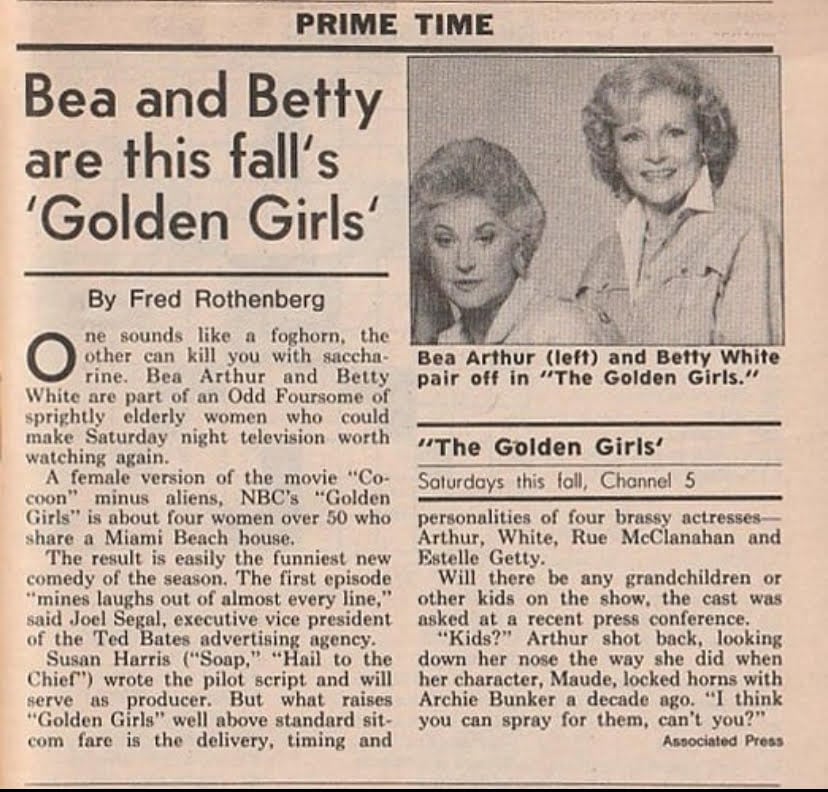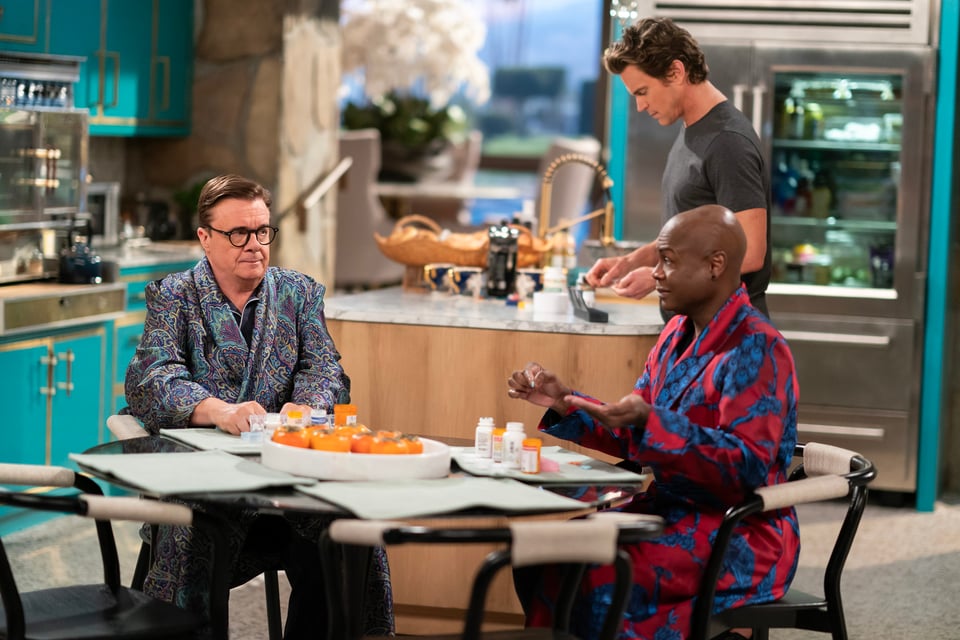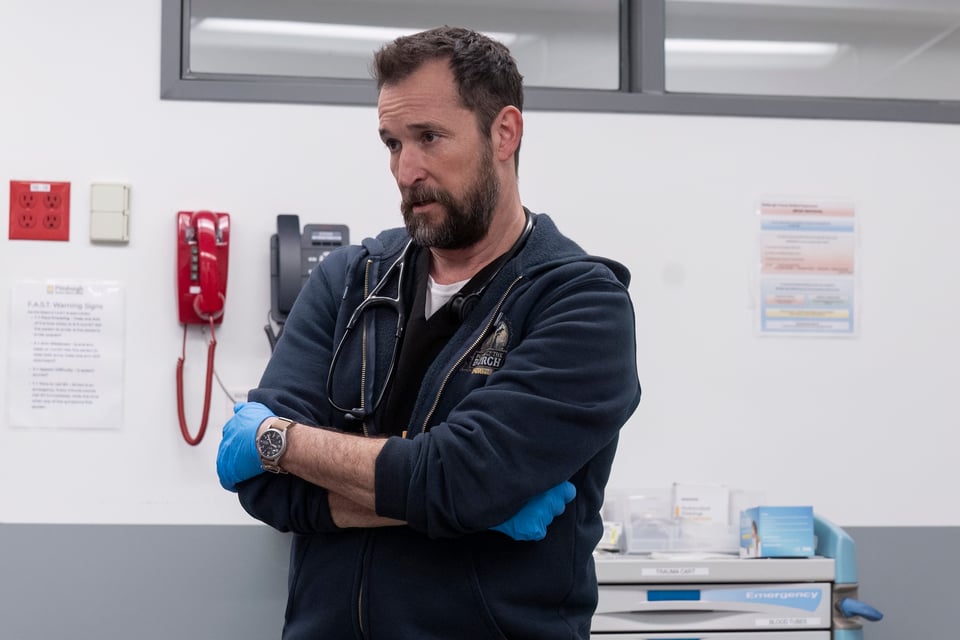“The Golden Girls” and the death of regularity
Streaming blew regularity to pieces. It's time streamers re-embrace it.

Forty years ago, “The Golden Girls” premiered on NBC. If you watched Sunday’s Emmys, you were treated to a (weirdly lackluster) reminder of this fact.
It debuted on Sept. 14, 1985. A Saturday.
Remember when TV networks used to program Saturdays? Why did they stop? If anything, fewer people are going out on Saturday nights than ever. But somewhere along the way, TV networks simply gave up on Friday and Saturday nights.
But the reason I bring up “The Golden Girls” is because it represents one of the appeals of old school broadcast television: The regularity it promised — and still promises. Not just a new episode on a set day and time, but the promise of new shows each fall.
Streaming blew all that regularity to pieces, with staggered premieres happening … whenever. It’s so chaotic that nobody knows when a show is coming back, let alone that it might already have a new season available right now. Yes, now.
It can feel just as difficult to stay informed about new shows you might be interested in. Before streaming, TV Guide, Entertainment Weekly and other outlets would put out fall previews, and it was a great way to get your info all in one place. Many outlets still do this (you can read my fall 2025 preview here), but the fall TV season isn’t as potent anymore, at least in my imagination. TV shows premiere year round and it’s become a job for viewers to keep up.
That’s because streamers have cut back on marketing budgets. But also, it’s just harder to promote anything effectively when the algorithm can silo off even people who share the same home. You’re either inundated with promos or never see one at all, there’s almost no in between. But more to the point, there’s no clear-cut way to mass market anything unless you do a big spend like Warner Bros. did with the “Barbie” movie.
I wrote about this phenomenon for the Tribune a couple years ago. Back in the day, even if you hadn’t seen a show or movie, you at least knew it existed:
For most of TV and film history, we absorbed information about upcoming releases through a combination of TV, print and radio ads and coming attractions in the theaters themselves. Even if you weren’t paying much attention, you were passively absorbing it through pop culture osmosis. It was just in the air all around you and there was a sense that you could go about your life and expect this information to be served up to you with minimal to no effort on your part.
That’s not how it works anymore.
Which is why the loss of regularity is so counterproductive. It’s one component that could actually bring a sense of order or logic to the TV release schedule.
I miss the anticipation that used to come with the fall TV season. The end of summer can be a let down, but the promise of new shows used to be a fairly decent consolation prize.
Let’s go back to “The Golden Girls.” Here’s how an AP story described the series ahead of its premiere in 1985:
One sounds like a foghorn, the other can kill you with saccharine. Bea Arthur and Betty White are part of an Odd Foursome of sprightly elderly women who could make Saturday night television worth watching again.
The female version of the movie “Cocoon” minus aliens, NBC’s “Golden Girls” is about four women over 50 who share a Miami beach house.
The result is easily the funniest new comedy of the season. The first episode “mines laughs out of almost every line,” said Joel Segal, executive vice president of the Ted Bates advertising agency. (Nina here: lolololol at quoting an ad exec as if they were a TV critic!)
Susan Harris (“Soap,” “Hail to the Chief”) wrote the pilot script and will serve as producer. But what raises “Golden Girls” above standard sitcom fare is the delivery, timing and personalities of four brassy actresses — Arthur, White, Rue McClanahan and Estelle Getty.
Will there be any children or other kids on the show, the cast was asked at a recent press conference.
“Kids?” Arthur shot back, looking down her nose the way she did when her character, Maude, locked horns with Archie Bunker a decade ago. “I think you can spray for them, can’t you?”
I just want to point out that the writer uses “elderly” and “over 50” as if they’re synonymous and, even in 1985, that just wasn’t true. (The age of the actors in real life — between 53 and 63 when the show premiered — wasn’t elderly either, even though their characters were living fully retired lives.)
By the way: Susan Harris, the creator of "The Golden Girls," is still alive. Why wasn’t she on stage at the Emmys saying something pithy about the show’s origins? She's 84 and, to be fair, we don't know if she would have been up to it. But her absence was conspicuous, especially in an era when many showrunners have become household names along with their stars. It seems unfair that she missed out on that.
Hulu tried to revive the format this past year with the sitcom “Mid-Century Modern” about three gay best friends — played by Nathan Lane, Matthew Bomer and Nathan Lee Graham — sharing a home together. Instead of Miami, the setting is Palm Springs, which is a distinction without a difference when it comes to a vaguely gestured-at backdrop of palm trees and retirees.

The show is not good, mostly because the characters lack distinct personalities. What do they want? What is their comedic function within the show? The creators go heavy on overworked banter — “You don’t look sad, you just look like a reluctant bottom” — which can be fun, but only if it feels specific to each character, not just a racy line anyone in the scene would rattle off.
It’s a shame, because it would be so fun to have a show like “The Golden Girls” right now, albeit one that reflected the realities of today. Too many Americans simply do not (or will not) have the funds to bid adieu to the workforce, so what would a show about roommates in their 50s or 60s look like today, when fewer of us can actually contemplate retirement?
HBO’s terrible “Sex and the City” sequel “And Just Like That …” follows the original characters as 50-somethings, but it doesn’t bother with these financial realities, it just made everyone rich. (Upside down face.)
Let’s get back to this idea of regularity. I have so much respect for John Wells, the writer-producer behind everything from “The Pitt” to “ER” to “The West Wing” to countless others, because he understands on a fundamental level how to make good TV. He was profiled by The Hollywood Reporter recently and he made this point:
People want shows that can come back on a regular basis with a strong cast … That’s nothing new, but it seems like we’re having to rediscover it again as if we hadn’t all known this for a long time.
Also:
With all due respect to all of my friends who make TV, there is no reason these shows can’t be on every year.
Bwahahahahaha (takes a breath) hahahaha.
Yes. This break of 18 months to two years between seasons is ridiculous. (A recent cartoon in the New Yorker drawn by Ali Solomon shows a couple watching an awards show on television, with the presenter announcing: “And the award for Longest Wait Time Between Seasons goes to …”)
Before streaming — back when Wells got his start and learned his craft — shows came back after just a three-month summer hiatus, which provided a sense of … regularity. Wells is making this exact point.
Also: “having to discover it again as if we hadn’t all known this for a long time” is maddening.
And yet here’s what HBO/HBO Max chairman Casey Bloys had to say about that after Sunday’s Emmys:
… bread-and-butter shows churning out high-quality episodes, week after week, is a really tough thing to do.
You mean the way television existed for its entire history except for the last 10 years of streaming?!
Yes, making good shows is hard. But it is embarrassing to see a network president feign ignorance about how this worked for more than half a century. Granted, Bloys has spent the vast majority of his career at HBO, with a short stint at CBS early on, and HBO never made shows on a broadcast network schedule. But still …
Phineas Jones (who does occasional art for this newsletter; check him out) had a funny response to Bloys’ comments:
The ability to put together a 20+ episode season is a magical secret of the ancient past. It has been lost to civilization like making Greek Fire.
And while we’re at it, let’s go back to 22-24 episode seasons. I know some people think that’s too many. So don’t watch? Long seasons mean holiday-themed episodes make sense; these various signposts give shape to the year, especially the bang, bang, bang of Halloween, Thanksgiving and the winter holidays. We experience that in our own lives and there's something nice about seeing it reflected in the shows you're watching in real time.
Or as someone noted on Bluesky: “I miss the rhythm of traditional broadcast television. It was reassuring to mark the passage of time, week to week, season to season, with the unfolding of episodes in these worlds parallel to our own.”
Change can be good. And change has certainly upended television. I like the convenience and variety offered by streaming. But I think it’s also a mistake for Hollywood to abandon elements of network TV that still appeal to viewers for understandable reasons. Why does it have to be all or nothing?
Long TV seasons are a grind for the people who make those shows. But cast, writers and crew are paid per episode, so shorter seasons mean all but the independently wealthy still have to hustle for yet more work throughout the year in order to make a living, which is basically a grind-plus. That doesn’t sound like an improvement.
We know it’s possible to make shows on a consistent schedule and some streaming shows have figured this out. “The Bear,” which is produced by FX and streams on Hulu, has returned for each of its four seasons like clockwork in June. Season 2 of “The Pitt” on HBO Max will premiere in January, 12 months after Season 1 premiered. Here’s hoping more streamers see the wisdom in re-embracing the idea of a schedule, because it takes away so much of the guesswork for audiences.

Creative minds have spent decades figuring out how to get audiences engaged. There’s never just one way to do it.
But when you toss away so many tried-and-true elements (like theme songs or the fall-spring TV season), and then add in so many other complications that make building an audience more challenging (like short seasons and a complete lack of regularity), you’re giving viewers fewer reasons to care.
Streaming abandoned these truisms because … move fast and break things. But then you’re left with a broken industry. Restoring some regularity could meaningfully repair some of that.
Also this week …
The death of Robert Redford resulted in a lot of great and comprehensive pieces about his career. I wanted to do something short on the elusiveness he gave to his characters that made them interesting conundrums rather than a blank. No role exemplified this better than 1973’s “The Way We Were." Hubbell, you absolute coward!
You can read that here.
Also for the Tribune, I weighed in on the 77th Prime Time Emmy Awards, and asked: If the Emmys can't muster excitement for television, why should anyone else?
So many first-time winners got a much-deserved honor, but they were let down by a bizarre broadcast.
The biggest issue: Host Nate Bargatze:
He is a standup comedian who is familiar to many, and perhaps unfamiliar to just as many. That’s a departure from the recognizability factor of previous Emmy hosts because it’s a gig that asks a person to serve as mayor of television for the night. So I’ll just say it’s “interesting” that the Television Academy decided to go with a guy who told Esquire earlier this year: “Everybody has lives, everybody has kids, everybody has stuff to go do. They don’t want to sit and worship your art.” Isn’t that precisely what the Emmys are for — one night for audiences to do just that?
Which is perhaps why there was a far bigger reaction when Stephen Colbert took the stage. The enthusiasm was probably due to the drama surrounding the cancellation of his late-night talk show, which will wrap in the spring (and may or may not have been politically motivated to appease the current presidential administration), but also because Colbert is a credible avatar for mayor of television.
"In moments like this, neutrality is not enough,” the Television Academy's chairman said from the stage to lots of applause and nods. Was that response a whole lot of nothing? Because earlier this week, ABC parent company Disney indefinitely suspended Jimmy Kimmel’s late-night talk show. So let's see how many clout-heavy folks in the room on Emmy night remain neutral or not.
You can read more of my Emmys coverage here.